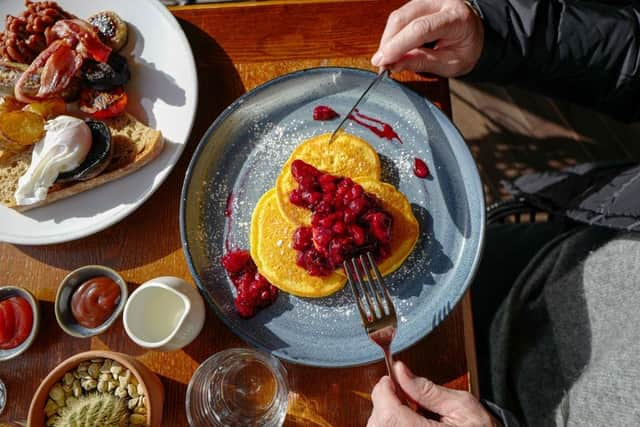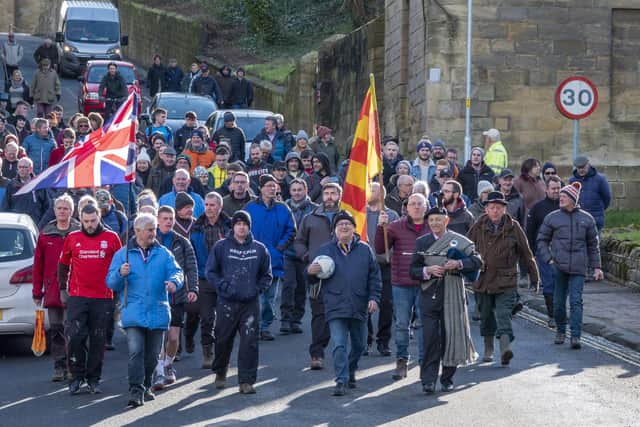Shrove Tuesday: Cock throwing and medieval football - everything you need to know about Pancake Day
and live on Freeview channel 276
Taste-bud tantalising treats can include pancakes topped in ice cream, chocolate spread, maple syrup or fresh fruit, while those with a savoury tooth may go more for crispy bacon or eggs benedict.
For many people, it is the only day of the year they indulge in this circular batter cake mix of eggs, flour, milk, and baking powder.
Advertisement
Hide AdAdvertisement
Hide AdBut as you tuck into your tasty treat, do you know the history behind pancake day and why we eat them? Here’s everything you need to know.
What is pancake day?
Although often referred to as pancake day, historically the correct name is Shrove Tuesday, the Christian feast day before the beginning of Lent - a period of fasting in the build-up to Easter.
Even today many Christians will give up a particular type of food during this period in recognition of the sacrifices Jesus made while fasting for 40 days and nights in the period leading up to his crucifixion.


On this day Christians would go to Confession to be absolved – shriven – of their sins before Lent. A bell would be rung to call people to Confession which in time came to be called the pancake bell.
Why do we eat pancakes on Shrove Tuesday?
Advertisement
Hide AdAdvertisement
Hide AdIn preparation for Lent, on Shrove Tuesday Christians would clear out their cupboards and use up any items to prevent any temptation during fasting. A big part of the staple diet at the time was sugar, fats, eggs and milk – the key ingredients used to make pancakes.
With the last chance of indulgence before fasting, people would make pancakes as a tasty treat and to use up ingredients.


When is pancake day and why is it always a Tuesday?
Shrove Tuesday is always the day before the start of Lent, which is Ash Wednesday, meaning it always falls on a Tuesday. Ash Wednesday marks the 46 day period in the build-up to Easter Sunday, 40 days of which mark Lent.
With the date of Easter moving each year then so too does Ash Wednesday and Shrove Tuesday. With Easter falling on a Sunday between 22 March and 25 April, Shrove Tuesday always falls between February 3 and March 9.
What other traditions do we have on Shrove Tuesday?
Advertisement
Hide AdAdvertisement
Hide AdDue to the thin batter and to prevent burning, a pancake has to be regularly flipped. This led to many towns and villages hosting pancake races in which participants would race against each other while flipping their pancakes.
Originating in the 12th century in Ashbourne in Derbyshire and spreading to other English towns, historically Shrove Tuesday is also synonymous with mass games of an early "medieval football" game. It often involved the participation of sometimes hundreds of people, most of the town or village’s men, with each team having a ‘goal’ target sometimes over a mile apart.
Players could contest and carry the ball using both their hands and feet. One of the closest games used to take place in Sedgefield in County Durham while another took place in Alnwick which is still reenacted today.
Other traditions, which thankfully no longer take place, included cock fighting and cock throwing.
